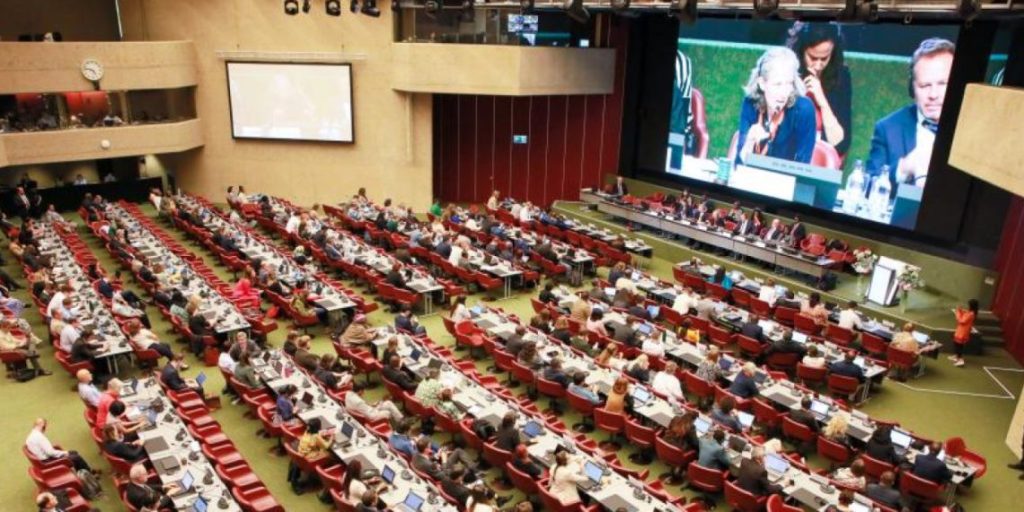International Collaboration Establishes Intergovernmental Science-Policy Panel on Chemicals, Waste, and Pollution
The international community has reached a groundbreaking milestone in environmental governance with the establishment of a new intergovernmental science-policy panel dedicated to addressing the escalating global crisis of chemical pollution and waste. Formalized through a resolution adopted in Nairobi, Kenya, this panel signifies a concerted effort to bridge the gap between scientific understanding and policy action, mirroring the model of the Intergovernmental Panel on Climate Change (IPCC) and the Intergovernmental Science-Policy Platform on Biodiversity and Ecosystem Services (IPBES). The panel will provide independent, objective scientific assessments to inform policy decisions related to the management of chemicals and waste, aiming to minimize their adverse impacts on human health and the environment. This initiative marks a significant advancement in global environmental diplomacy, acknowledging the urgent need for a more coherent and evidence-based approach to tackling the complex challenges posed by chemical pollution.
The impetus for the creation of this panel stems from the growing recognition of the pervasive and detrimental effects of chemical pollution on ecosystems and human well-being. The widespread use of chemicals in various industrial processes, agriculture, and consumer products has led to their ubiquitous presence in the environment, contaminating air, water, and soil. These chemicals, many of which persist in the environment for extended periods, can bioaccumulate in organisms, posing significant risks to human health, including developmental disorders, reproductive issues, and various chronic diseases. Furthermore, chemical pollution contributes to biodiversity loss, disrupts ecosystem functions, and exacerbates the impacts of climate change. Existing international frameworks have proven inadequate in addressing the multifaceted challenges posed by chemical pollution, highlighting the need for a strengthened global response anchored in scientific evidence.
The new science-policy panel will play a crucial role in providing policymakers with the scientific knowledge necessary to make informed decisions regarding the sound management of chemicals and waste. Its assessments will encompass a wide range of topics, including the identification of emerging chemical risks, the evaluation of existing and proposed policies, and the development of innovative solutions for pollution prevention and remediation. The panel will synthesize existing scientific literature, conduct independent research, and engage with stakeholders from various sectors, including governments, industry, academia, and civil society, to ensure the comprehensiveness and relevance of its assessments. By providing a robust scientific foundation for policymaking, the panel aims to facilitate the transition towards a more sustainable and equitable future, minimizing the adverse impacts of chemicals on human and environmental health.
The establishment of this panel represents a significant paradigm shift in global environmental governance, transitioning from a reactive approach to a more proactive and preventative one. Rather than solely addressing the consequences of chemical pollution, the panel will focus on upstream interventions aimed at minimizing the production and release of hazardous substances into the environment. This proactive approach emphasizes the principles of precaution and pollution prevention, advocating for the development and utilization of safer alternatives to harmful chemicals. The panel’s assessments will also consider the socio-economic dimensions of chemical pollution, recognizing the disproportionate burden borne by vulnerable populations and promoting equitable solutions that address environmental justice concerns.
The effectiveness of the new panel will hinge on its ability to foster collaboration and coordination among diverse stakeholders. Engaging with governments, industry, scientific institutions, and civil society organizations will be crucial for ensuring that the panel’s assessments are relevant, credible, and actionable. International cooperation will be essential for implementing the panel’s recommendations and translating scientific knowledge into concrete policy measures. Capacity building initiatives will also be necessary, particularly in developing countries, to enhance their ability to effectively manage chemicals and waste, promoting a more equitable sharing of the responsibility for global environmental stewardship.
The creation of this intergovernmental science-policy panel marks a pivotal moment in the global fight against chemical pollution and waste. By providing a robust scientific foundation for policymaking, the panel has the potential to transform the way chemicals are produced, used, and managed throughout their lifecycle. Its success, however, will depend on the continued commitment and collaboration of all stakeholders, working together to create a healthier and more sustainable future for generations to come. The panel’s work will contribute significantly to achieving the Sustainable Development Goals, particularly those related to good health and well-being, clean water and sanitation, responsible consumption and production, and life below water. It represents a significant investment in the future of the planet, recognizing the interconnectedness of human and environmental health and the urgent need for a more integrated and precautionary approach to managing the risks posed by chemical pollution.
Share this content:












Post Comment